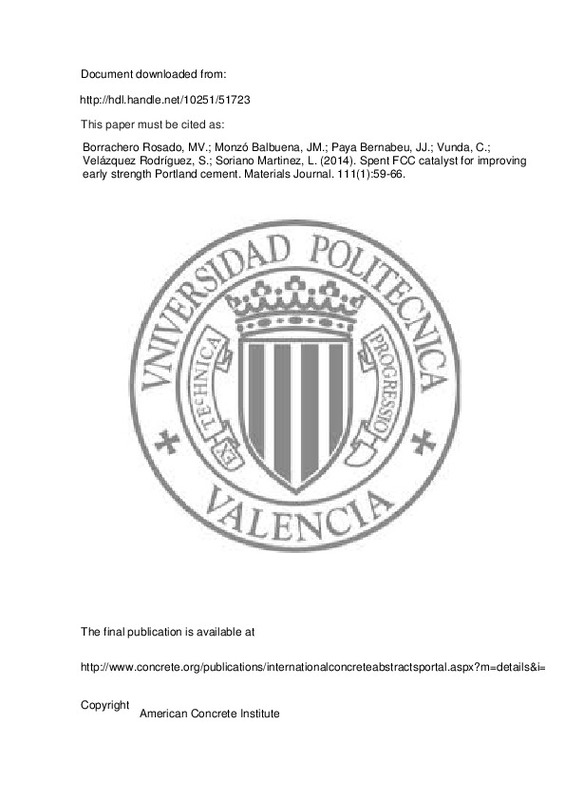JavaScript is disabled for your browser. Some features of this site may not work without it.
Buscar en RiuNet
Listar
Mi cuenta
Estadísticas
Ayuda RiuNet
Admin. UPV
Spent FCC catalyst for improving early strength Portland cement
Mostrar el registro completo del ítem
Borrachero Rosado, MV.; Monzó Balbuena, JM.; Paya Bernabeu, JJ.; Vunda, C.; Velázquez Rodríguez, S.; Soriano Martinez, L. (2014). Spent FCC catalyst for improving early strength Portland cement. Materials Journal. 111(1):59-66. http://hdl.handle.net/10251/51723
Por favor, use este identificador para citar o enlazar este ítem: http://hdl.handle.net/10251/51723





![[Cerrado]](/themes/UPV/images/candado.png)


